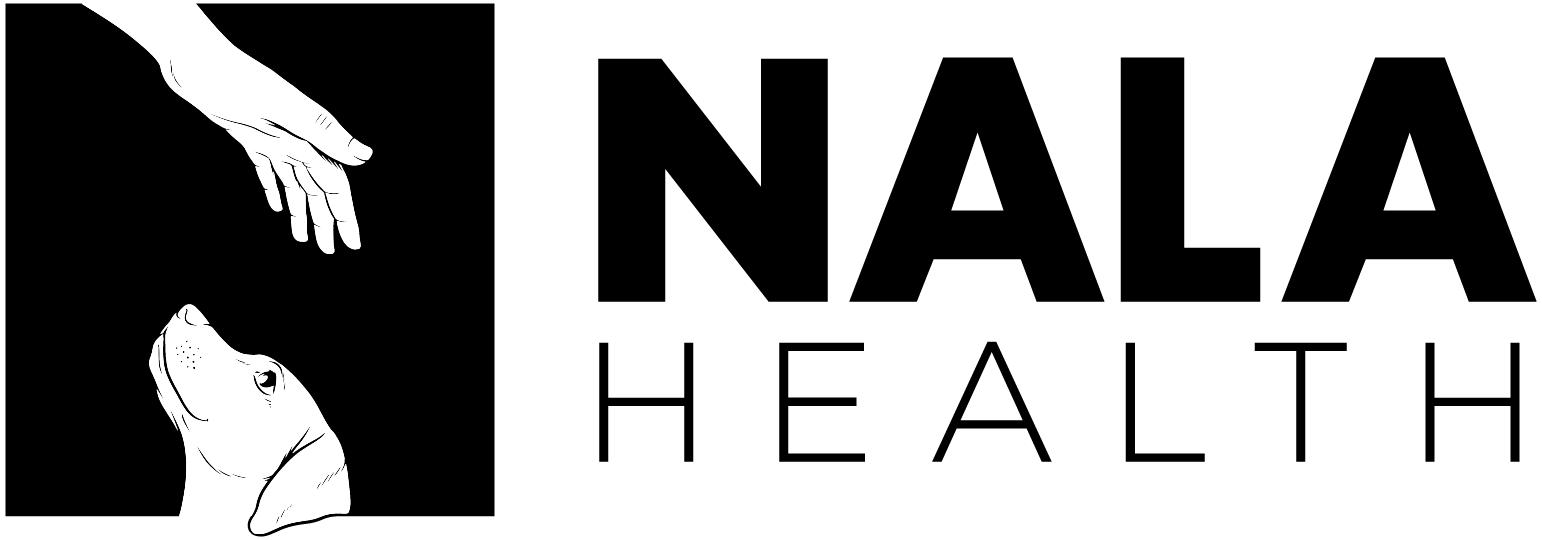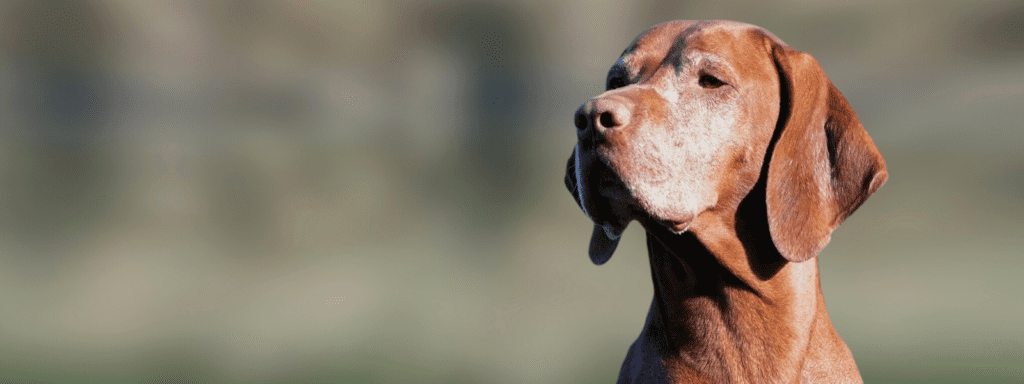Caring for my ageing dog
 Cecilie Hemsen Berg
Cecilie Hemsen Berg
There are several things we can do to ensure our ageing dog is happy and healthy. As our dog ages, they often get joint pains, loss of appetite and in some cases lifestyle diseases such as cancer. Conditions that can add to these issues are if your ageing dog is under or overweight. Ensuring our ageing dogs get their required care, exercise, mental stimulation and comforts require a little bit of effort from us but it is worth it to make sure they are living to their full potential.
When is a dog considered senior?
Typically, a dog is considered to be senior when they reach the last quarter of their life expectancy. If you have a golden retriever whose life expectancy is 12 years then her senior years begin when she turns 9 years old. A general rule of thumb is that small dogs are considered senior when they are 11 years old, medium dogs are considered senior at 10 years old and big dogs are considered senior at 8 years old.
Signs your dog is getting older
You can also determine when your dog is reaching her senior years when she shows signs of ageing. In combination with the fact that your dog is older, here are some signs of ageing:
- Loss of vision and hearing
- Loss of appetite
- Weight gain or weight loss
- Reduced energy levels
- Joint pains and stiffness
- Loss of muscle tone
- More sick days
- Altsheimers or loss of mental acuteness
- Hair loss and reduced skin elasticity
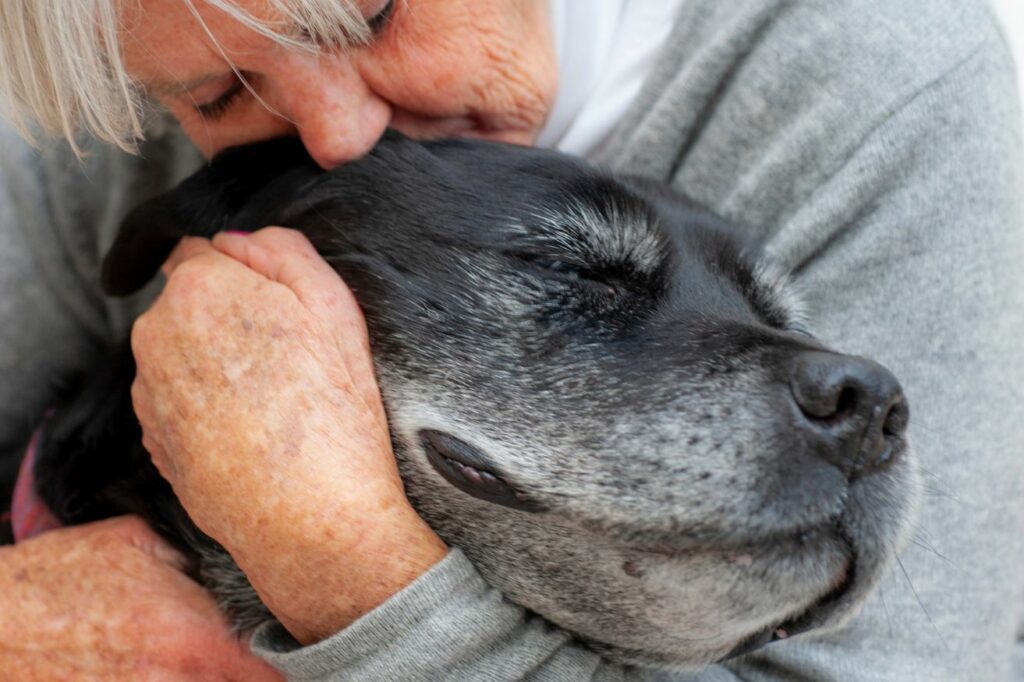
Caring for an older dog
Visit the vet a couple of times a year
Dogs age differently, depending on breed, size, lifestyle and genes. It can be difficult for us to understand whether changes are due to normal signs of ageing, or whether there is a serious health condition behind it. Therefore, it is important that you know your dog well, and that you have built up a consistent history with the vet. This contributes to your dog ageing in the best possible way, and that you as the owner get the support and knowledge you need in this phase. The earlier you notice changes, the better.
Make sure your dog is comfortable
1. The sleeping area
Dogs spend a relatively large amount of time in bed, so make sure it is anatomically correct. Older dogs get cold more easily, so a warm blanket is nice to have. In general, it is good to allocate a place in the home where your dog can retire for some rest, especially if there are children in the house.
You can look at your dog’s behaviour to find a spot in the house he or she enjoys lying in. Maybe it’s a sunny spot in the living room, a quiet corner in the bedroom, or on the warm floor in the bathroom. You can make this spot his or her rest area.
2. Weight control
Managing your dog’s weight will ensure they are comfortable by reducing aches, pains and lifestyle diseases. Your dog’s energy requirement often reduces with age, and it is therefore important to feed your ageing dog food formulated for senior dogs. A healthy weight helps prevent lifestyle diseases such as joint pain and diabetes. Nala Health’s premium+ dog food for senior dogs contains an optimum amount of quality protein, as well as L-Carnitine which is both important for the heart muscles, as well as burning fat for energy.
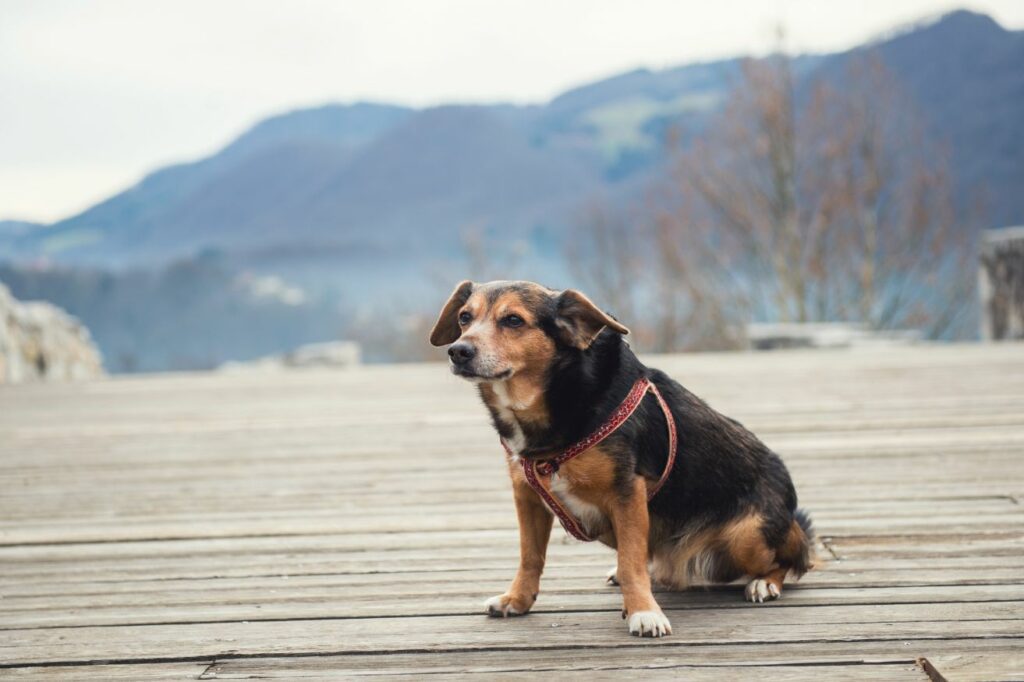
3. Grooming
Regular grooming of the fur, nails and teeth is important and gives you a great opportunity to keep an eye on your dog’s overall health and keeps your dog feeling good. Among other things, you can more easily pick up if your dog has special sore spots, or if it is struggling with a sore tooth or gum disease.
A staggering 85% of older dogs have dental problems. By brushing your dog’s teeth and taking care of their dental health you can avoid these problems. Supplements for bone health and good nutrition can also aid in normal tooth health.
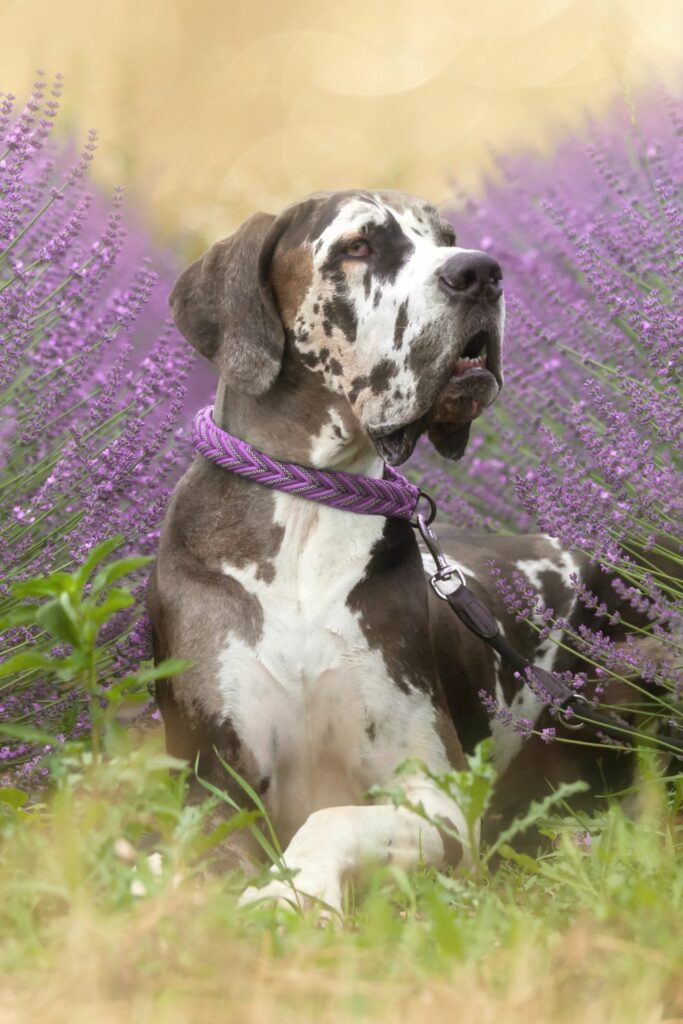
Adjust your ageing dog’s activity level
Older dogs move more slowly. This may be a normal sign of ageing but it can also indicate that they have sore joints, that they are overweight, or they have other pains.
The activity level should be adjusted for your dog’s energy level, motivation and mobility. Many natural treatments can be beneficial to your dog at this stage of life. Going to the chiropractor, giving your dog massages, acupuncture, physiotherapy and water gymnastics/water treadmill are all treatments your dog can benefit from.
If your dog is struggling to jump in and out of the car, you can build or buy a ramp to make this process easier for both you and your fur baby. Exercise contributes to good circulation, muscle mass and joint health as well as mental stimulation. Walk different routes to keep it interesting and bring water and some treats for hydration and motivation.
Mental stimulation
The brain changes as we get older, and is affected by oxidative damage, loss of brain tissue/atrophy and the development of beta-amyloid plaque. Dogs can also become senile or suffer from Alzheimer’s (CDS or cognitive dysfunction syndrome). If you suspect your dog is suffering from memory loss, you must let the veterinarian eliminate other causes of altered behaviour.
Socializing with others – both dogs and humans contributes to mental stimulation. Allow your dog to continue to participate as actively as possible in life so that the world does not become a confusing and scary place. The point is not overstimulation, but shorter periods of play and activity. Let daily routines be as predictable as possible. Among other things, Nala enjoyed looking for goodies we hid around the house or garden, playing hide and seek, and listening to classical music.
Good nutrition for senior dogs
As your dog gets older, you will notice more changes. Among these changes are altered sense of taste and smell, which can reduce their appetite. It is important to make sure that your dog gets enough calories and nutrition adapted to the situation. Relatively old dogs tend to lose muscle mass, so discuss with your veterinarian how your dog can best maintain optimal weight.
To make their food more enticing, you can mix some vegetables, fruits and berries in the dog food. Lightly steamed cauliflower, broccoli, carrot, crushed blueberries, grated apple, finely chopped parsley or homemade bone broth are nice additions. It is however important to only feed your safe foods.
Bad teeth can also be a reason why your dog does not eat his food. Keep an eye on the oral cavity (teeth and gums) by brushing your dog’s teeth daily. Check for abnormalities in the mouth byb running your fingers gently along the gums and teeth.
There are several types of dog food formulated for older dogs, as well as food made to treat specific health conditions (obesity, arthritis, diabetes, weakened kidneys, congested liver, etc.). Older dogs should consume less protein than younger dogs to avoid overworking the kidneys. The protein source should be of good quality and in the correct amount to maintain optimal health and body function.
It can be beneficial to add supplements, and Nala Health has developed 3 good alternatives:
- Gut Health: Contains chicory root, dill, fennel yeast extract, probiotics, sweet chestnut extract and calcium butyrate. Supports the digestive tract and contributes to good intestinal health. A healthy gut is also better equipped to absorb nutrients.
- Immune Health: Contains brewer’s yeast, Chaga mushroom, blueberries, sea lettuce and yeast extract. Supports the immune system and helps maintain and develop the immune response.
- Joint Health: Contains collagen, yeast extract, marine algae, devil’s claw, green-lipped mussel and turmeric which together can help maintain a healthy skeleton and flexible joints.



Old dogs may have accidents
Even though your dog is house trained, they may begin to relieve themselves inside. Your dog may have become incontinent, senile or they just can’t hold it as long as they used to. Do not punish your dog for this. Rather take your dog out more often and maybe a trip to the vet to eliminate any disease.
Causes for your older dog to relieve themselves inside may be; kidney disease, diabetes, or a urinary tract infection. If your dog has become senile then she may have forgotten her house training. There are some solutions to this problem such as medications and diapers. The solution may also be as simple as taking your dog out for bathroom breaks more often. Discuss with your vet the best solution for your dog.
Ensuring your old dog is comfortable and cared for in their senior years will give them a better quality of life. Even though your older dog may develop health complications or lack energy there are simple things you can do at home to make sure they are living to their full potential.
